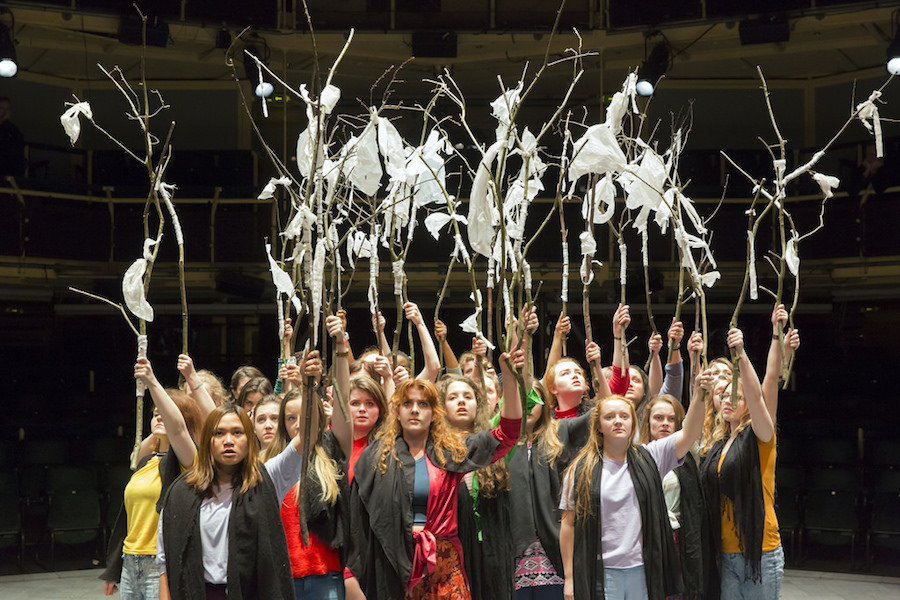I remember saying “I don’t do classics”. It was somewhat indignant of me. In a room full of strangers, I laid out my stall. No ordinary strangers it has to be said. Assembled for their prowess of all things theatrical, including classics no doubt. Yet, here I was, with the same set of strangers only a few days later, watching a bona fide classic of the greek variety no less. How did I end up like this?
The classic in question is The Suppliant Women by that “well known” Greek tragedian Aeschylus. It was written over 2500 years and is regarded as one of the world’s oldest plays. You can’t get more classic than that, can you? Could words written over two thousand years ago have any relevance in this day and age? Or would it be one of those overacted Shakespearean-esque productions that modern theatres love to indulge in?
At the heart of Aeschylus’ tragedy is a group of refugees. Fleeing from their homeland, seeking haven in foreign lands, asking for protection. These refugees are fifty daughters of Danaus, who are to be married off against their will, and so escaping on a boat they turn to King Pelasgus of Argos and it’s people to help them in their struggle.
These refugees form the chorus and take centre stage. Mesmerizingly so. The vocal choral depiction of their plight is harrowingly sung to the rafters. Chanting. Banshee wailing. Bursts of clapping. The aching harmonies are heartbreakingly demonstrated with rhythmical precision. It goes without saying that the vocal nature of the cast’s performance is captivating – with composer John Browne’s enigmatic score at it’s heart – but also in equal measure is theirs and choreographer Sasha Milavic Davies’ physical interpretation of Aeschylus’ classic.
The Royal Exchange in Manchester is an innovative and perhaps an apt space for this reimagined version by the Actors Touring Company and Royal Lyceum Theatre Edinburgh. I’ve always found the intimate setting of the Royal Exchange, with it’s audience almost appearing to be at one with its productions, can lay bare the soul of those that act within its confines. In The Suppliant Women, it has found a true advocate for its qualities as a theatre house allowing it to showcase the blend of acoustic aural delights in conjunction with that infamous classic round auditorium.
Nevertheless, David Greig’s version could have ended up one dimensional. Just relying on that dazzling choral centerpiece. Look beyond that shining light and you will see touches of hue that bring illumination to this production. Indeed, it was the light and its clever use to envelope the production in darkness, allied with its choir of song and debilitating subject matter, that ultimately resonated with me. This is a testimony to director Ramin Gray.
So could words written over two thousand years ago have any relevance in this day and age? A production that deals with the plight of refugees, the role of women in society, the impacts of those in exile, the themes of democracy and our responsibilities to protect the persecuted are as much relevant today as they were 2500 years ago it would seem. Who knew?
Verdict: An old classic that at times is captivating and surprisingly the subject matter can be considered as relevant today as it was 2500 years ago.
